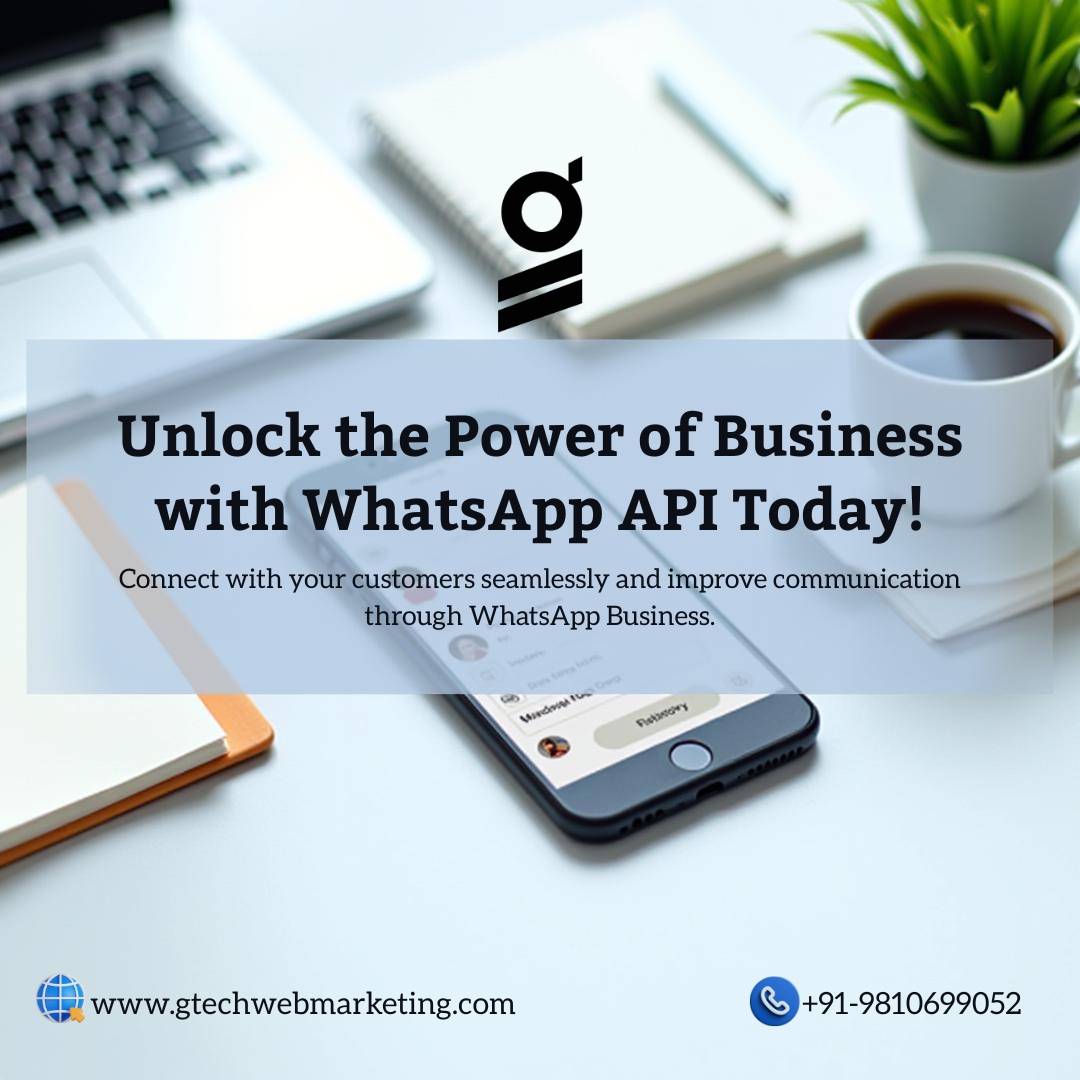
In the ever-evolving landscape of digital communication, businesses are constantly seeking new ways to connect with customers quickly, reliably, and at scale. WhatsApp, with its massive global user base of over two billion people, offers a unique opportunity to do just that. While the WhatsApp Business App serves the needs of small businesses effectively, medium to large businesses require a more powerful and scalable solution. This is where the WhatsApp Business API comes in.
What Is the WhatsApp Business API?
The WhatsApp Business API is a specialized communication platform designed for businesses to interact with customers on WhatsApp in a secure, scalable, and automated manner. Unlike the WhatsApp Business App, which is limited to one device and managed manually, the API allows companies to integrate WhatsApp directly into their backend systems such as CRMs, customer support platforms, and marketing tools.
This makes it possible to manage thousands of customer interactions simultaneously, automate responses, and send time-sensitive notifications — all while using the familiar interface of WhatsApp as the delivery channel.
Why Use the WhatsApp Business API?
Businesses today face increasing pressure to provide fast, seamless, and personalized support. Traditional channels like email or SMS often fall short in terms of engagement and response time. WhatsApp, on the other hand, offers:
-
High Engagement: WhatsApp messages have an open rate of over 90%, far surpassing email.
-
Real-Time Communication: Engage with customers instantly in a conversational format.
-
Global Reach: Communicate with users around the world using a single, unified platform.
-
End-to-End Encryption: Ensure secure, private interactions.
These advantages make WhatsApp a natural choice for customer service, support, notifications, and even sales.
Key Features of the WhatsApp Business API
1. Automated Messaging
Businesses can automate responses using chatbots and workflows. This is especially useful for handling frequently asked questions, booking confirmations, and status updates.
2. Two-Way Conversations
The API supports rich, two-way communication. Companies can receive inquiries and respond with text, images, videos, documents, and more — all within a familiar and intuitive messaging interface.
3. Template Messages
For sending notifications or outbound messages, companies must use message templates. These are pre-approved messages used for things like shipping updates, payment reminders, or appointment confirmations. Template messages ensure consistency and compliance with WhatsApp’s user protection policies.
4. Session Messaging
When a customer initiates a conversation, a 24-hour session window opens during which the business can send free-form messages without template restrictions. This enables live agent support and conversational engagement without added friction.
5. Rich Media Support
Businesses can send multimedia content, such as product catalogs, video tutorials, invoices in PDF format, and interactive buttons — creating a more engaging and informative customer experience.
Common Use Cases
The WhatsApp Business API can be applied across a wide range of industries and purposes, including:
-
Customer Support: Handle inquiries, provide order status, troubleshoot issues, and offer personalized assistance.
-
Transactional Notifications: Send real-time updates on orders, payments, deliveries, and reservations.
-
Marketing and Promotions: Notify users about product launches, discount offers, and abandoned cart reminders — all with a personal touch.
-
Onboarding and Verification: Send OTPs, verification codes, or onboarding guidance during account creation or setup.
Getting Started with the API
To start using the WhatsApp Business API, a business must first create a WhatsApp Business account and verify its identity through Meta’s Business Manager. Once approved, the business can set up its phone number and configure the API to suit its communication needs.
The API can be hosted on-premises or in the cloud and requires backend development knowledge to manage messaging, session control, and compliance with WhatsApp policies. Alternatively, businesses can build custom integrations to connect the API with their existing systems and workflows.
Considerations and Best Practices
-
User Consent: It is essential to obtain opt-in consent from users before sending them messages via WhatsApp.
-
Timeliness: Businesses must respond to customer-initiated messages within 24 hours to avoid needing approved templates.
-
Compliance: All messaging must adhere to WhatsApp’s business policy, which prioritizes non-spammy, value-driven communication.
The Future of Business Messaging
With increasing customer expectations for real-time support and personalization, the WhatsApp Business API presents a powerful tool to meet those demands. Its integration capabilities, automation features, and widespread adoption make it an indispensable asset for any business looking to scale communication efforts without sacrificing quality.
As WhatsApp continues to evolve, the API is expected to support even more advanced features — from payment integration to AI-driven personalization. For businesses willing to invest in a robust messaging strategy, the WhatsApp Business API offers a gateway to more meaningful customer relationships and operational efficiency.